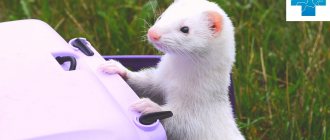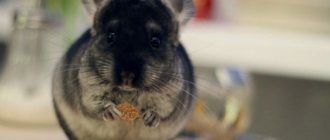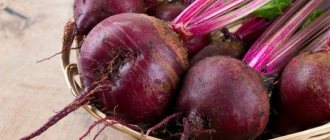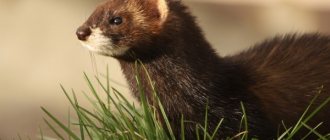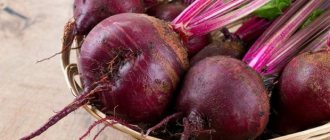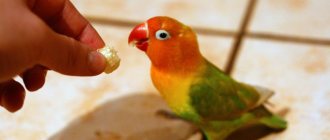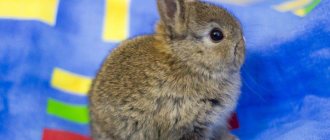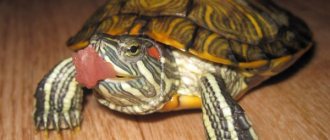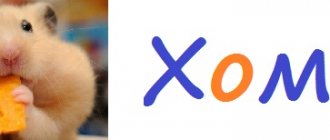There are a wide variety of ferret foods on the market, but don’t forget that most of them are economy-class foods that may not meet your pet’s nutritional needs. Sometimes such foods can harm the ferret and its digestive system.
Ferrets eat almost like kittens
The nutritional needs of a ferret are in many ways similar to those of a kitten, so some cat foods are suitable for ferrets. When purchasing food, you must check the integrity of the packaging, shelf life and manufacturer. Food storage conditions must be carefully observed.
Feeds for ferrets are divided into:
- specialized food for ferrets;
- premium cat and kitten food suitable for ferrets;
- food for cats and kittens, which is suitable for feeding super-premium ferrets.
Any animal has its own nutritional needs, so food must be selected based on the individual characteristics of your pet.
Features of feeding dry food
Dry food is convenient to use. By purchasing a ready-made premium-class granulated product, you can be sure that along with the granules, your ferret will receive a balanced and nutritious diet.
Features and benefits of feeding ferrets dry food:
- Male ferrets eat more than females. The daily norm for a male/female is 60-70/40-50 g.
- Dry food, unlike minced porridge, does not need to be put in the refrigerator.
- In dry food, as in natural food, the presence of animal fats is required - about 20%, proteins (proteins) - from 32%. The content of plant fibers is up to 4%, carbohydrates are sufficient - 5%, and their maximum permissible norm in dry food for ferrets is 20%.
The length of the digestive tract in ferrets is half that of a cat's, and there is no cecum at all - this makes it difficult to digest plant foods, so its content in the diet of ferrets is minimal, but not excluded.
Dry food storage
Before opening the package, the food can be stored in any dry place, avoiding direct sunlight.
After opening the package, the food must be poured into a separate container with a tight-fitting lid. The container can be made of metal or plastic materials.
Dry food should be stored in a dry container, away from humidity and direct sunlight.
IMPORTANT! Do not mix leftover old food with new food.
Before using the dry food storage container, it must be thoroughly rinsed and dried. The food must be stored in accordance with the storage rules indicated on the packaging.
These simple tips will help you provide your pet with delicious and fresh food every day.
Do you store food in a separate jar? Sometimes ferrets don't like changing food.
How often to feed ferrets?
The ferret is an active animal that needs a lot of energy. It's no surprise that he often wants to chew something. Ferrets cannot be called gluttons, they just have a very high metabolism, and they have to regularly replenish energy costs.
Frequency and principles of feeding ferrets:
- If two or three meals a day are enough for dogs and cats, then ferrets should have access to food constantly. The owner should provide food for the whole day or more, and the ferrets themselves will eat it as soon as they see fit.
- After observing, you will notice that ferrets eat from 7 to 10 times a day. But little by little.
Nutritional requirements
Like any living creature, ferrets require vitamins and minerals to stay healthy, as well as adequate intake of proteins, fats and carbohydrates. These are the five essential components for the normal and healthy functioning of any being. Elements such as fatty acids and amino acids should also be highlighted. The pet's body will require fatty acids, namely arachidonic acid, as well as two types of amino acids: arginine and taurine. These elements can be found in foods that are plant-based, but ferrets are carnivores. And when feeding it, it is prohibited to use products for vegetarians. Because they can harm your overall health.
Animals have very fast metabolisms. In this regard, food is digested in about 3 hours, and the ferret, in turn, eats about 10 times a day. In addition, animals have a short digestive tract, and therefore the pet simply cannot digest complex carbohydrates properly. And there are very large amounts of such carbohydrates in vegetables, grains and fruits.
For their diet, only simple carbohydrates should be used, for example, sugar, as well as starch. If you feed plants to animals, they can come out exactly the same as they were eaten. This is caused by an inability to digest them due to the lack of certain enzymes.
What is the difference between cat and ferret food?
In nature, ferrets feed on small rodents, birds, and insects; it is not surprising that it is extremely difficult to feed them at home, without specialized food. Ferrets are picky when it comes to food, so they won't eat just any cat food.
Today there is no strict standardization for ingredients in pet food, therefore, when choosing food, it is important to be interested in their composition.
Difference between ferret and cat food:
- Among the main components of dry cat food is poultry (chicken and turkey). And new dietary foods for ferrets also contain fish.
- Ferret food should contain about 25% bone meal.
- Cat food contains a lot of carbohydrates - they serve as a binder. But carnivorous ferrets have virtually no need for carbohydrates. Moreover, they are poorly digested and absorbed by the animals’ bodies.
- Low quality cat foods may contain rice flour. If it is poorly ground, it will not be absorbed by the body. Also, dry cat food may contain soy, which ferrets do not need at all.
Manufacturers today offer food designed specifically for the needs of ferrets, so there is no particular need to look for food for them among cat foods. But, in principle, they can be used to feed ferrets.
Which cat foods are suitable for ferrets:
- Food for kittens and pregnant cats - they are useful for both babies and adults. Transfer to food for adult cats is made only when the animal reaches 5 years of age.
- Quality class - super premium. Only the best food for kittens and pregnant cats is suitable. Economy, medium and even premium are not suitable. They contain little meat, a lot of dyes and an insufficient amount of vitamins.
Ferrets are not animals that will eat whatever is given to them. They will not eat food that does not meet their needs, especially those that replace meat with soy.
Nutritional norm
Of course, no matter what the ferret is, its feeding should be portioned. The serving size will depend on the weight, age, activity and health of the animal. For example, it is better to give a pregnant woman larger portions. Usually, reputable manufacturers indicate on the packaging what portions the pet needs, as well as what food is suitable for a small ferret.
Each animal is individual, so you need to carefully monitor its behavior, especially in the first days of feeding. You need to create a diet individually, since feeding is a very responsible process. This way you can easily understand whether your pet likes the food. It is also necessary to monitor whether your pet drinks after eating, because this is very important for the absorption of food. A good alternative to dry food is natural food, as mentioned above.
As for fish, your pet will happily eat flounder, mackerel, cod and trout. Boiled chicken eggs and raw quail eggs are also very useful. Occasionally you should give your ferret cheese and cottage cheese. A good addition to natural nutrition would be vitamins (especially in winter) purchased at a special pharmacy. At the same time, you should not engage in amateur activities. Before buying and giving your animal any vitamins, even the most harmless ones, it is important to consult a specialist.
At home, there is nothing better for a ferret than natural food; the pet eats such food with pleasure. Ferrets will not be able to constantly eat dry food. As in the wild, a natural diet and balanced feeding will be a real gift for the ferret. The best dish for a ferret is homemade minced meat, many recipes for which are available on the Internet. Here you can choose the recipe that your pet will like best. Calculating how much food your pet needs for a month is very easy to do.
Norm of products for preparing farshekashi for a month for one ferret
- 80 g flour or rolled oats;
- 225 g rabbit and 200 g beef meat;
- 142 g chicken hearts and 170 g beef heart;
- 145 g chicken gizzards;
- 125 g beef liver;
- 250 g turkey;
- 1.1 kg chicken necks;
- 250 ml water;
- 250 g low-fat cottage cheese;
- 60 g chicken skin and 251 g chicken fat.
How to feed a ferret? Of course, all of the above products require high-quality processing: they need to be thoroughly washed, film removed if it is beef, and bones if chicken and turkey are used. Next, operations similar to preparing stew with porridge are carried out. The meat is twisted through a meat grinder, the porridge is boiled, cottage cheese and a little water are added and everything is mixed. The result should be a homogeneous mass.
This food can be stored in portions, but it is best to prepare new food each time, since eating fresh is more pleasant and healthier. Also, to make minced meat more nutritious and healthy, you can and should add fish oil, milk powder, grated vegetables (in small quantities), and olive oil. All these supplements can be given only in minimal dosages, since the body may not digest large quantities, and the pet will feel unwell.
Recipe for every day
What to feed your ferret every day? To prepare a simple, but at the same time balanced diet, you will need the following list of products:
- 1 kg chicken;
- 100 g chicken hearts, heads, stomach and liver;
- 600 g of any porridge.
Next, perform the steps that are described in detail in the preparation of farshekashi. You also need to add yeast and cottage cheese here. This will be especially useful if your pet is a girl. All types of recipes can be found on various forums dedicated to ferrets, where you can chat with lovers of these animals and share your experiences, as well as watch photos and videos.
Recipe No. 3
Ferrets' diet should be varied, so to prepare such a dish you will need the following ingredients:
- 500 g chicken necks;
- 250 g chicken stomachs;
- 400 g of already boiled buckwheat or oatmeal, whichever is more to your pet’s taste.
There are certain rules for preparing farshekashi, recommendations on how to make the food healthy and not harm your pet. You also need to consider what ferrets eat. Farshekasha should be prepared only from fresh and natural products. The first and basic rule: all products must be fresh and of high quality. You should not cook too much minced meat or feed your pets only dry food. Your pet will enjoy eating fresh food, so you need to prepare according to the number of pets. You can add fish, but extremely rarely.
Fish should be given to your ferret once a month. There are two reasons for this. Firstly, the fish stunts the pet's growth. Secondly, there are significantly more worms living in fish than in any type of meat. It will be much healthier to buy fish oil at the pharmacy.
Of course, there are also completely prohibited foods that should never be given to your pet. These include vegetables and fruits. There is also a taboo on sweets and nuts. The pet cannot be fed from the common table. Too much flour can cause serious health problems. Also, you should not give moldy foods or food that has expired. Such products should be thrown into the trash immediately.
Drinking regime
In addition to food, like any other creature, a ferret needs water. A special container or drinking bowl should be provided for water, located close to the animal. Any diet requires constant drinking, especially if the ferret eats dry food. Pelleted food swells when it enters the stomach, and in this case, the ferret needs to drink as much water as possible.
A drinking bowl can be purchased at any pet store. Water should be in the drinking bowl at all times. It should be at room temperature and should not contain chemicals. If regular detergent enters the body, it can cause the death of a pet in the same way as dehydration.
Dry feeding rules
Dry food is the ideal nutritional solution for these energetic and demanding animals. But, giving preference to dry food, it is important to follow a number of rules regarding feeding ferrets.
Rules for feeding dry food:
- It is not recommended to mix food types - industrial feed and natural products. Simply put, if you feed your ferrets dry food, they won't need fresh meat or other food.
- Do not give your ferrets vitamin or mineral supplements. Balanced dry food contains all the substances necessary for ferrets. Additional supplements can lead to hypovitaminosis.
- It is forbidden to give ferrets dry dog food. They do not meet the needs of these animals.
- Don't skimp on your ferrets' food. Never buy them economy, middle or premium food. Only super premium (professional).
- Consider your ferret's individual reaction to a particular food. It may be suitable for some individuals, but in others it can cause allergies, provoke obesity, etc.
Types of feeding
There are three types of feeding for ferrets.
The first method is natural food.
It consists of providing the pet with food like its wild relatives - this is feeding mice, rat pups, day-old chicks, and small rodents. They can be alive, or frozen immediately after killing. You can feed with live mealworms, marbled cockroaches and frogs. This method is physiologically the most optimal, but it is not always possible at home.
Chicks for ferrets can be purchased at pet stores
The second method is self-made food
It involves feeding with natural products and preparing farshekashi. There are many options for preparing it.
Food - minced meat, must be fresh
The list of foods that can be included in ferret food is limited:
- Meat. It's better if it's chicken or turkey. Sometimes you can give lamb, horse meat or beef. There is no need to boil the meat.
- By-products – poultry offal, kidneys, ventricles, liver, lung.
- Cereals – rice, buckwheat and millet. To improve peristalsis, a small amount of well-cooked porridge (15% of the total amount of feed) is sufficient.
- Boiled vegetables in small quantities.
- Fish. It should be given occasionally.
- Boiled eggs once a week.
- Dairy products – low-fat cottage cheese, kefir, sour cream.
- Fats – fish oil or vegetable oil.
All products, especially raw meat, must be of the first freshness.
Farshekashi recipe
Grocery list:
- chicken necks – 2 kg;
- chicken tripe – 1 kg;
- well-cooked oatmeal or buckwheat.
The meat components are minced and mixed with porridge. It is divided into portions (an adult male eats from 200 to 400 g at one meal, and a female from 100 to 200 g) and frozen. Before use, vitamins are added to the mixture.
The third method is feeding with dry food.
This method has several advantages:
- convenient for breeders who do not have the opportunity to constantly buy fresh food and prepare minced meat;
- properly selected dry food can provide your pet with the necessary set of nutrients;
- are stored for a long time;
- food can be poured into the feeder immediately for the whole day.
Manufacturers offer a variety of dry foods designed for domestic ferrets. It is worth giving preference to feed from leading manufacturers with a premium mark. Basic requirements for dry food content: 40% protein, 30% fat and 3% fiber. It is also necessary to ensure that there are no components of synthetic origin. The composition of a good diet without any admixture of plant components consists of animal body parts, muscle meat, and poultry meat.
After starting to take dry food, it is necessary to monitor the pet’s condition; if its health worsens, the food must be changed.
It is not recommended to use dog food; it contains little taurine and many substances of plant origin. As a last resort, you can use high quality cat food.
Regardless of the chosen method of feeding ferrets, it is necessary to enrich the diet with vitamins and dietary supplements.
Vitamins and dietary supplements
Ferrets, like any other living creatures, need vitamins:
- Vitamins A, D, E. Added to the animals’ food every other day, 1 drop per individual.
- Fish fat. Place 2 drops directly into the animal's mouth every day.
- Biotin. The method of use and dose should be looked at on the packaging of the dietary supplement.
- B vitamins and vitamin C are included in the daily diet. You can use additives based on brewer's yeast.
- Calcium should be given in a balanced ratio with vitamin D and phosphorus.
It is not recommended to give ferrets vitamin complexes created for humans. It is acceptable to use medications intended for puppies and kittens.
Treats for ferrets
From time to time you can pamper your pets with goodies. These can be fruits, dried fruits, hard cheeses, oatmeal cookies, yogurt-based sweets.
Pet stores also offer a variety of treats to choose from. These include dried liver and other products designed specifically for ferrets. The undoubted advantage of such delicacies is that they are both tasty and healthy.
Many breeders offer their pets baked goods that the animal has difficulty digesting.
Complex carbohydrates are best avoided. Chocolate and candies are also very harmful to ferrets. You can offer the animal chicken baby food. You can add chicken gravy to dry food.
It is better if the ferret receives treats occasionally, as a reward.
How to choose dry food?
Pet stores offer a wide variety of ferret foods. But the large selection is deceptive - there are few truly good products. They mainly sell economy class products. It does not meet the ferret's nutritional needs at all.
Poor quality food is dangerous to the health of ferrets, so their choice should be taken responsibly. The more nuances you take into account when choosing food for ferrets, the greater the chance that it will be successful.
What to look for when buying ferret food:
- Class. Only super premium. All other food is made from budget raw materials, and ferrets are very picky.
- Compound. The meat component should prevail over the grain component. Ferrets are carnivores and need meat. Give preference to poultry. Barley, soy meat, fish and oatmeal in the composition are a minus. Fish has a bad effect on the condition of the ferret's coat and skin, since food containing fish is low in fat.
- Taurine and yucca. The sulfonic acid taurine has a positive effect on vision and heart function, yucca improves the digestion process and neutralizes the unpleasant odor of ferret waste.
- Balance of components. The optimal ratio is 30-35% animal proteins, 18-22% animal fats and 3% carbohydrates.
- Ash. Its content should not exceed 7%, otherwise ferrets will suffer from urolithiasis.
It is not recommended to buy food that contains corn meal. Ferrets do not absorb and digest it well. Never buy loose feed - it is always of questionable quality.
Main requirements for the diet
Ferrets are like cats; they also love to eat meat. But their main difference from cats or dogs is that they have a rather primitive digestive system. There are quite a few bacteria in their intestinal tract that can digest large amounts of food at once, as well as carbohydrates in particular. Just meat for such pets can be considered a single normal diet, which is as close as possible to the natural diet and nutrition in general. But meat is only part of their diet. Ferrets also feed on internal organs, for example, liver or kidneys, and can even eat the intestines of the victim. The ferret will not disdain skin or bones. Their teeth allow them to eat such food. But you can’t limit yourself to meat only, because this affects the health of your pet. Therefore, food should also be included in the diet.
Types of dry food
There are two types of feed on sale - granulated and compressed. Cats happily eat granules, but ferrets are recommended to be fed compressed food.
Why compressed feed is better:
- Pellets contain starch. It is half cooked, so it can cause problems with stool in ferrets and negatively affect behavior.
- It's quite common for pellets to get stuck in ferrets' throats.
The temperature during processing of pressed feed is twice as high - thanks to this, they are digested faster in the short gastrointestinal tract of animals.
Manufacturers produce special dried treats for ferrets. They are packaged in transparent vacuum packaging. The average weight of such delicacies is 15-50 g. Price - 120-200 rubles.
Dry treats (snacks) for ferrets:
- chicken necks;
- lamb stomach;
- beef intestines;
- chicken silt (straws);
- chicken stomach;
- beef lung;
- rabbit ear and others.
How to water ferrets
Ferrets drink a lot of liquids, so it is important to provide them with a constant source of clean water at room temperature. In the feeding area, it is better to install two drinking bowls with automatic drinking. Your pet will not knock over the bowl if you use heavy dishes. The cleanliness of drinking bowls must also be carefully monitored.
Lack of water can lead to overheating and dehydration of the animal.
If possible, you can arrange a small fountain in the cage; the ferret will splash around in it with pleasure.
Rating of the best dry food
Manufacturers offer a wide range of super premium dry food that is suitable for feeding ferrets. These include both products created specifically for these animals, and the highest level of cat food - for kittens and pregnant females.
The best dry foods suitable for feeding ferrets:
- Orijen “Cat and Kitten. Complete super premium food for cats. Contains 85% meat. The three supplements are zinc, copper and choline. The food contains carbohydrates with a low glycemic index that meet the biological needs of predators. 2/3 consists of fresh, without preservatives, meat. Or from raw meat - quick-frozen, without preservatives. Added freeze-dried liver, which is a natural enhancer of taste and smell - the most picky cats/ferrets like it.
- Acana Wild Prairie for cats. Cat food with dehydrated chicken and turkey meat. Contains potatoes and white fish meat. In production, the manufacturer assures, the meat of free-range poultry was used. Meat content - 75%, vegetable component - 25%, no grains, potatoes or GMOs.
- Wildcat "KARRO" - German super premium cat food. The main ingredients are rabbit and poultry. Contains more than 70% meat, a lot of proteins and fats. The food contains low carbohydrate content - less than 15%. There is a unique combination of plant substances, a balanced ratio of omega-6 and omega-3 fatty acids.
- Eukanuba Cat Adult — professional food for cats from 1 year. Contains freeze-dried chicken and turkey meat, taurine, chicken liver. The downside is that there is some corn grits. The composition also contains animal fat, fish meal, and rice. This is a complete dry food with high quality animal protein. Provides complete and balanced nutrition, healthy skin and shiny coat, maintains excellent physical shape of the animal.
- Ferret food Bosch “Totally Ferret” High Premium. German food of high quality. Made from fresh meat and natural ingredients. Does not contain soy, preservatives, synthetic antioxidants, GMOs. The manufacturer offers three versions: Bosch Totally Ferret Baby is a complete dry food for puppies, made from poultry meat. Also contains wheat and fish flour and other products. The animal protein content in terms of dry product is at least 61.5%.
- From 1 year to 5 years - complete dry food for adult ferrets. The animal protein content in terms of dry product is at least 42.5%.
- Over 5 years old. Recommended for aging and elderly ferrets. Contains special components that reduce the smell of excrement. Contains easily digestible proteins, highly effective vitamins and minerals. Contains less protein than foods up to 5 years old - 33%.
Healthy foods
Ferrets are quite demanding, and for harmonious development, meat products in their diet should be about 50-60%. In addition to high-protein foods, cereals are served.
You can feed your ferret the following types of meat:
- chicken;
- turkey;
- beef;
- lamb;
- rabbit meat;
- horse meat;
- quail
The most suitable are lean meats. A more budget-friendly food option suitable for ferrets is giblets, offal - liver, kidneys, heart.
Ferrets are not averse to eating fish. Of the most preferred types:
- salmon;
- horse mackerel;
- herring;
- mackerel;
- cod;
- flounder.
Crustaceans such as shrimp, as well as squid, will also appeal to your pet.
Porridge is given in the form of a mixture of cereals: buckwheat, wheat, rice, pearl barley or other types preferred by the pet.
Ferrets' favorite foods are those that they can independently obtain in the wild. These include:
- mealworms, zofobas (only as additional food, since they are very fatty);
- cockroaches (Argentine, Turkmen);
- chickens;
- mice.
This food can be purchased at a veterinary pharmacy or pet store, or at a specialized market.
Dairy products also benefit ferrets; they readily eat cottage cheese, kefir, and cheese.
Despite the small amount of fiber in the diet, vegetables and fruits are necessary to normalize digestion. Ferrets love:
- vegetables - pumpkin, peppers, radishes, zucchini, broccoli, tomatoes, peppers;
- fruits and berries - bananas, persimmons, avocados, pears, apples, gooseberries, melons, strawberries, cherries, grapes.
In the winter season, as a replacement for fresh fruit, you can give your pet dried fruits - prunes, dried apricots, figs, raisins, dates.
Many useful substances are contained in fresh herbs, so you can add chopped dill and parsley to the nutritional mixture. In summer, ferrets benefit from nettle leaves and stems, previously scalded with boiling water.
When deciding what to feed your ferret at home, you need to consider the list of prohibited foods. It contains hard, difficult to digest vegetables.
Also, you should not offer ferrets excessively fatty foods, smoked foods, spicy foods and seasonings, pickles, baked goods, foods high in sugar, nuts, and soy.
It is enough for a male ferret to eat up to 400 g of food per day. Females need a little less - up to 200 g of food.
Knowing the list of permitted products, it will not be difficult to feed your ferret at home.
What food is not recommended?
Not only food for kittens and cats requires careful attention, but also specialized products for ferrets. There are brands that produce food that does not meet the nutritional requirements of ferrets, and some do not consider it necessary to indicate the detailed composition of the product.
Untrustworthy ferret foods:
- Fiory “Superpremium Furby” ferret food. The manufacturer notes that the product contains taurine and is enriched with vitamins A, D3, E. However, the packaging does not indicate what kind of meat was used in the manufacture of the product. This kibble contains too many grains. Lots of negative reviews.
- Vitakraft "Premium Menu" Ferrets - food for ferrets made from meat and animal by-products. Poultry keeping - 24.4%. It contains a lot of grains - in 2nd place in terms of quantity.
- Padovan Ferret Food - food for ferrets. No data on carbohydrates. The specific type of raw material is not specified. The percentage composition seems acceptable, but the ingredients are of questionable quality - meat by-products. Under their guise, any low-quality raw material can be added to the feed.
It is strictly forbidden to give ferrets:
- Dog food - Pedigree, Chappi and the like.
- Soft food for cats - Kitekat, Whiskas, Friskies, Felix, Purina One. Their ash content is too high - 8%. And the maximum permissible value is 6.5-7%. These feeds also contain a lot of corn (17%) and wheat (12%). Almost a third of the composition is grains, this is unacceptable in relation to food for ferrets.
- Rowal Canin – food for cats and kittens. They are based on an isolate of plant rather than animal proteins. These are low-nutrient foods with low protein content.
What to do if your pet doesn’t want to eat a new type of food?
Frequently changing food for ferrets is not recommended, so you need to choose a brand of food that is sold in your city and that you can afford at any time.
It is impossible to determine whether the food is suitable for your pet at first glance. It is necessary to give the ferret’s body time to get used to the new type of product, and only then draw conclusions about its suitability.
If your pet refuses to accept food from any manufacturer, then a special analysis can be performed that allows you to determine how your ferret's body reacts to this food.
If the ferret does not want to eat a new type of food even after a long period of time, then it is best to abandon this manufacturer and choose the food that is most suitable for your pet. With the correct selection of food:
- The ferret's fur is bright, shiny, without foreign odors or secretions;
- the smell from the toilet is minimal or practically absent;
- the stool has a uniform consistency, without mucus and other secretions, and so on.
Water in the diet during dry feeding
Ferrets drink a lot and often. It happens that they come to the drinking bowl up to 20 times a day. They are especially thirsty if the basis of their diet is dry food.
Helpful Tips:
- Wash the bowls into which you pour water regularly. And fill them on time.
- Give fresh water at room temperature.
- It is advisable to provide clean, filtered water.
- Change the water in drinking bowls at least twice a day.
Ferrets must have water available at all times. Its lack leads to impaired thermoregulation and dehydration.
Diet based on natural products
Domestic ferrets should not be fed food from your table. Food for them is prepared separately, without salt and spices.
Main menu:
- 2/3 of the daily diet is meat.
- 1/3 of the diet is cereal porridge. You can prepare a dish by combining oatmeal, buckwheat, wheat and rice.
It is very convenient and healthy to feed domestic ferrets with “minced meat”, which involves mixing cereals with parts of minced meat and offal in a ratio of 1:3. It can be prepared in advance, divided into portions and placed in the freezer. Before feeding, food is defrosted to room temperature.
If desired, the owner can add small quantities of vegetables to the cereal porridge (no more than 10% of the total portion).
Boiled eggs are served to your pet no more than 2-3 times a week.
How many grams of natural food do ferrets eat per day?
Features of dry feeding at different periods
Feeding habits for a ferret depend on the age and health of the ferret. There are recommendations for each period of an animal’s life.
Growth period
Newborn ferrets receive all important nutrients from their mother's milk. When switching to regular food, it is advisable to always have probiotics on hand. Dry food can be given to animals after the appearance of milk teeth. Complementary feeding begins at 1.5-2 months.
The transition to dry food is carried out gradually. First, young ferrets are given liquid minced meat - they must wean themselves off their mother's milk. Puppies are fed often, as they eat a lot. They require a lot of energy to grow and run around - the animals are very active and curious.
It is important at the stage of accustoming ferret cubs to adult food to decide on the form of nutrition - whether it will be dry food or minced porridge and natural products.
During molting
Ferrets shed in autumn and spring. And pregnant females, in addition, molt at the 20th week of pregnancy. Hair loss is also observed in animals whose bodies experience hormonal imbalances. Molting lasts 7-14 days.
During this period, animals especially need vitamins and fatty acids. There is no need to change the diet of ferrets if they receive high-quality dry food that provides adequate nutrition. And fish oil will help fill the animals’ needs for the substances they need during the molting period.
Since it is quite difficult to feed fish oil capsules to ferrets, it is recommended to give ferrets liquid fish oil - 35 drops on the tongue every day.
Pregnancy period
During this period, females require special nutrition - some additional microelements and vitamins must be introduced into them.
Pregnant females need:
- phosphorus;
- calcium;
- vitamins A, E, D and group B.
If the animal eats ready-made dry food, then you don’t need to add anything - you just need to choose a product from a special line for pregnant and lactating ferrets.
Old ferrets
Ferrets are considered senior citizens after they reach 6 years of age. Older animals no longer need as much energy as young ones, so special food is made for them, with a reduced protein content.
During illness
Sick ferrets need extra care because they have no appetite. To recover, they need high-quality, high-calorie nutrition. Sick animals need to be fed often, in small portions.
Sick ferrets will eat more and better if you give him something new every day. You'll have to diversify your diet. If the animal eats dry food, then it is better to pamper it with various dry treats, which are presented in a wide range.
If your ferret is chronically ill, then it is better not to feed him natural products and minced porridge. It is recommended to feed them Ensure Plus, Nutrical, Doctor's Foster & Smith Vitacal.
Homemade ferret food
The advantage of self-prepared food is the ability to select the necessary products.
Feeding puppies
Adult food can be given to puppies only from the age of 3-4 weeks. Until this time, they feed on mother's milk. The transition to adult food is carried out gradually. A small amount of minced meat is mixed with milk, kefir and little by little is given to the kids. Deprived of valuable mother's milk, puppies lose vitamins, their immunity is weakened, and digestion worsens, so they need to be given vitamin D and probiotics to improve the absorption of foods.
A small ferret should be fed the following dish:
- Prepare cereals, preferably rice or buckwheat. They do not have a dense shell and are easily digested. The cereal must be ground until it becomes flour, and then boiled to the consistency of thick jelly.
- The main ingredients for minced meat are chicken necks and stomachs. They need to be ground.
- Mix the prepared products and give them to the puppies. For 3 kg of minced meat there are 400 g of raw cereal.
Adult ferret food recipe
For pets over 1 year of age, it is necessary to diversify the diet as much as possible, expanding the range of products in the mixture. To prepare 1 kg of feed you will need:
- meat (chicken, beef, lamb) - up to 0.5 kg;
- beef heart - 100 g;
- fish - 200 g;
- cottage cheese - 100 g;
- rice - 100g;
- a little animal fat (about 15 g).
Rice porridge must be boiled until tender and thoroughly chopped. Grind meat products and fish into minced meat, and then mix everything.
Ferret diet on dry food
One of the important advantages of dry food is that there is no need to formulate a diet. If animals are fed live and natural food, you have to purchase a variety of products - meat, poultry, seafood, eggs, offal, vegetables, herbs, live food.
Thanks to dry food, there is no need to formulate a diet - the animals will get everything they need from these products.
The main thing is to choose the appropriate food that meets the energy needs of ferrets; here is an approximate daily “menu” of the animal:
- animal protein - 35%;
- vegetable fiber - 3%;
- fats - 22%;
- carbohydrates - 20%;
- other components - 20%.
Let's say you give a male ferret 60 g of food per day. Female - 50 g. They will eat 110 g per day. Your task is to ensure that there is always food in the bowl. If there is not enough feed, increase the norm to 70 and 60 g, respectively.
To understand how simple and convenient it is to feed ferrets dry food, compare natural diets with them. The table below shows which products and in what quantities adult ferrets need:
Daily natural diet that a ferret needs:
| Type of products | For female, g | For male, g |
| Beef, veal | 10 | 20 |
| Poultry (chicken, turkey, duck) | 30 | 45 |
| By-products | 40 | 60 |
| Cartilage | 20 | 30 |
| Fish | 40 | 60 |
| Poultry fat | 10 | 15 |
| Vegetable fat | 5 | 5 |
| Vegetables | 5 | 8 |
| Porridge | 16 | 20 |
| Fish flour | 1 | 2 |
| Yeast | 2 | 2 |
| Vitamins | 1 | 1 |
| Total: | 180 g (200 kcal) | 270 g (290 kcal) |
general characteristics
Despite its small size, the ferret is a fast, agile animal that can easily catch a nimble lizard, mouse or other small rodents. In times of hunger, ferrets can feast on larger prey: chickens, geese, muskrats or hares. In winter, when other animals try to sit in burrows, ferrets have the most unfavorable time for hunting, and they can feed on carrion.
Based on preferences, it is not difficult to feed your ferret at home. Food should be predominantly of animal origin.
The structure of the daily diet should include:
- from 50% animal protein;
- up to 25% fat;
- about 20% carbohydrates;
- 2-3% food of plant origin.
The main thing for a ferret is meat, fish, and offal. In addition to food of animal origin, there are a number of other products that are useful for ferrets, but there are also prohibited, hazardous to health, which should not be fed to a domestic ferret under any circumstances.
Consequences of poor nutrition
If the food is chosen incorrectly - it contains a lot of carbohydrates or fats, this will negatively affect the appearance and health of ferrets. A negative reaction also occurs when overeating treats.
Possible consequences of improper feeding:
- stomach disorders;
- gastritis, colitis, enteritis;
- salmonellosis;
- obesity;
- pancreatitis;
- hypovitaminosis;
- baldness;
- lethargy;
- blurred vision.
One symptom is enough to sound the alarm. It is necessary to contact a veterinarian and urgently adjust the diet, and if necessary, replace the food. It is better to purchase products from another manufacturer.
What is dangerous to feed?
Not only plant foods in large quantities are harmful to these pets. Many components we are familiar with pose a danger to ferrets.
| Dangerous and harmful foods for ferrets | |
| Type of feed: | Cause: |
| pork | possibility of infection with Aujeszky's disease, used only in boiled form |
| chicken by-products | When raising poultry, hormonal drugs and antibiotics are used, which accumulate in the internal organs |
| raw fish | the presence of parasites, such as diphyllobothrium, can only be used after freezing |
| boiled bones, boiled meat with bones | cooked bones are not digested, but are destroyed in the intestines into sand, causing coprostasis |
| sour milk | Causes stomach upset in ferrets |
| Rye flour | may cause intestinal dysfunction |
| sugar, sweets | insulinoma, gastroenteritis |
| dog food | high content of plant components in any class |
When should ferrets not be given dry food?
It is prohibited to feed ferrets low-quality food that is expired and does not meet their needs. Dry food has no contraindications other than individual intolerance. If an allergic reaction is noticed in one or another individual, change the brand of food.
The easiest way to judge whether a food is suitable for a ferret is by its appearance and stool. If the animal's fur has become dull, and the stool has acquired a strong odor or become liquid, you should think about changing the food.
Dry food is ideal for feeding ferrets if it is designed specifically for these animals and meets all quality requirements. Properly selected products will not only free people from the need to bother preparing food for animals, but will also become the key to their health, energy, and excellent appearance.
0
0
Copy link
Content Features
If you constantly feed your ferret minced meat, his mouth will start to stink. This is why farshekash is not suitable for constant feeding. The diet can be made up of different products. It is worth remembering about by-products if the animal eats them. They are given at least 2 times a week. For example, let's say a diet of chicken, turkey or rabbit. It is best to feed the animal 2 times a day.
Some experts even recommend not feeding your pet at all once a week. If the animal does not tolerate such an experiment well and then hardly eats, it should be fed in the evening, while leaving the bowl empty in the morning.
You should not feed cat food or canned food; each animal has a specially designed nutrition system.
An animal that eats properly looks like this:
- The ferret is active and friendly throughout the day and eats with appetite.
- The ferret's breath does not stink.
- Normal ferret stool is also an indicator of health.
- The pet sheds with its characteristic intensity and during the time allotted for this.
Eating in the wild
Frets are predators. They digest food very quickly, so you need to feed them easily digestible foods.
When free, the animals eat:
- chicks,
- fish,
- eggs,
- little frogs.
The animals eat everything they get without leaving a trace. Even bones or wool are not an exception. Plants are not the limit of the culinary dreams of representatives of the weasel family. Animals can eat grains or greens.
The entire volume is poisoned in the stomach in about 4 hours. A ferret's intestines are small and contain simple microflora, so before feeding your ferret carbohydrates, think carefully: such food will be excreted from the body in the form in which it entered it. Therefore, there will be no benefit from such nutrition. But an attempt to feed plant foods will invariably lead to bladder diseases, and the pet’s fur will no longer shimmer in the sun.
What to feed a ferret - a complete list of products
- Horse meat
- Turkey
- Beef
- Chicken
- Mutton
- Rabbit
- Quail
- Chicken
- All types of red
- Squid
- Chicken giblets
- Rice
- Tomatoes
- Banana
- Raisin
- Parsley
- Skim cheese
- Mice
- Frettchen4You
When feeding your ferret the foods on this list, remember to maintain the correct proportion and balance of the different foods.
Vitamins and supplements
As already noted, vitamins and supplements should only be included in a ferret’s diet if the animal is on a home-cooked diet.
An overdose of any vitamin or microelement can harm your pet's health.
The choice of supplements and vitamin complexes for domesticated predators today is quite extensive. Here are the most popular ones:
- "Vita-Sol"
This comprehensive vitamin supplement contains 7 vitamins and 4 types of fatty amino acids. The manufacturer recommends using the supplement during periods of growing up, pregnancy and lactation, as well as during molting of the animal. Directions for use and doses are indicated on the packaging. The duration of the course is 1 month.
- "FerretVite"
FerretVite paste will help your pet gain weight and improve appetite.
This is a special balanced paste that contains minerals, vitamins and easily digestible fats. This product is designed to support ferrets during postoperative periods, and also helps sick and exhausted animals recover.
Eating paste increases the animal's appetite and weight gain, so it is not recommended to give treats to overweight pets. The feeding schedule is indicated on the packaging.
Ferrets are strictly prohibited from taking vitamins intended for humans. Taking such drugs causes illness and death in pets.
- Vitamins of groups A, D and E.
Vitamins of these groups are given mainly to females during periods of estrus, pregnancy and lactation, as well as one-month-old ferrets in order to prevent bone diseases. The dosage should be observed very strictly, adhering to the factory instructions or the veterinarian's prescriptions.
